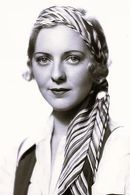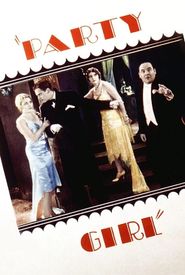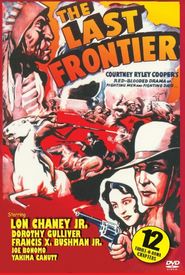Judith Barrie, originally christened Catherine Barrie, was a woman of unparalleled prestige, hailing from the vibrant and dynamic city of Sacramento, California, a place that would forever leave an indelible mark on her life's trajectory.
Her grandfather, a prosperous and enterprising wheat merchant, had laid the groundwork for her life of opulence and sophistication, providing her with a solid foundation upon which to build her future.
As a high-society debutante, Judith received a superior education at a renowned girls' school in Berkeley, California, where she had the opportunity to cultivate her abilities, nurture her intellectual pursuits, and hone her skills in a nurturing and supportive environment that would serve her well in her future endeavors.
Judith's academic pursuits reached a triumphant culmination, thereby ushering in a remarkable and illustrious career as a professional artist's model, a prestigious profession that would ultimately come to define her life's work.
Her remarkable talents, coupled with an undeniable and captivating charm, soon rendered her a highly sought-after subject, frequently sought out by the esteemed and celebrated artist James Montgomery Flagg, whose impressive portfolio would soon be graced by her striking visage.
Judith's life underwent a profound transformation in the year 1928, as she embarked on a new chapter by exchanging vows with the distinguished producer Edward Halperin. This momentous occasion would have a lasting impact on her artistic trajectory, setting the stage for a lifelong pursuit of her dreams.
With the unwavering encouragement and support of her husband, Edward Halperin, Judith was empowered to pursue her long-held passion for acting, a decision that would ultimately shape the course of her career. His unshakeable faith in her abilities and her own unwavering dedication to her craft would prove to be a potent combination, propelling her towards a lifelong journey in the entertainment industry.
Judith's entry into the world of professional cinema was marked by a significant milestone, as she made her film debut in the 1930 drama "Party Girl", a cinematic masterpiece that showcased her talents alongside the accomplished Jeanette Loff. This landmark performance served as a turning point in Judith's burgeoning career, as she began to establish herself as a multifaceted and accomplished thespian, demonstrating her versatility and skill in a variety of roles.
Jeanette Loff
Edward Halperin, the producer of the film "Party Girl", played a pivotal role in bringing the project to life, while his brother-in-law, Victor Halperin, assumed the director's chair, thereby underscoring the significance of Judith's relationships within the context of her professional pursuits.
In his capacity as producer, Edward Halperin's involvement in the production of "Party Girl" was instrumental in shaping the film's overall direction and tone, while his familial connection to Judith added a layer of personal significance to his role.
Meanwhile, Victor Halperin, as the director of the film, brought his own unique vision and creative perspective to the project, drawing upon his experience and expertise to guide the production towards its ultimate goal.
The fact that both Edward and Victor Halperin were involved in the production of "Party Girl" underscores the importance of Judith's relationships in her professional life, highlighting the interconnected nature of her personal and professional endeavors.
As a result, the film's production serves as a testament to the complex web of relationships that exist within Judith's life, with her familial connections playing a significant role in shaping her professional pursuits.
Judith's remarkable on-screen presence in the film "Party Girl" received widespread critical acclaim, with many praising her exceptional talent and skill. However, this initial success was not followed by a sustained period of recognition, as her trajectory in the Hollywood film industry seemed to plateau shortly after her breakout performance. Despite this, Judith persevered and managed to secure roles in only three additional movies, one of which was the western-themed "Hidden Gold", showcasing her versatility as an actress and ability to adapt to different genres and roles.
Judith Barrie, a remarkable and extraordinary individual, embarked on a fresh and unprecedented chapter in her life, marked by a significant turning point, following the culmination of her marriage, which ultimately led to her divorce.
Judith's unyielding determination and unwavering commitment to her craft enabled her to push through the numerous hurdles that stood in her path, as she relentlessly pursued her passion for the performing arts with unrelenting fervor, driven by an unshakeable enthusiasm that refused to be extinguished, even in the face of adversity.
Judith's unwavering commitment to her craft and her unrelenting passion for excellence, as the seasons unfolded, bore fruit in a manner that would transcend the fleeting nature of time itself, yielding a heritage that would continue to inspire and influence the lives of countless individuals for generations yet to come.
Judith Barrie's illustrious career in the realm of entertainment, marked by a plethora of unforgettable moments, ultimately came to a close on January 9, 1991, when she bid farewell to the world at the ripe age of eighty-three, leaving behind a treasure trove of cherished memories and a lasting legacy that eloquently spoke to her unyielding resilience and unshakeable determination.
Judith's extraordinary narrative stands as a shining exemplar of the human spirit, a testament to the transformative power of unwavering dedication, unrelenting perseverance, and an unbridled enthusiasm for one's profession, thereby illuminating the path for others to follow in her footsteps and create their own indelible mark on the world.















